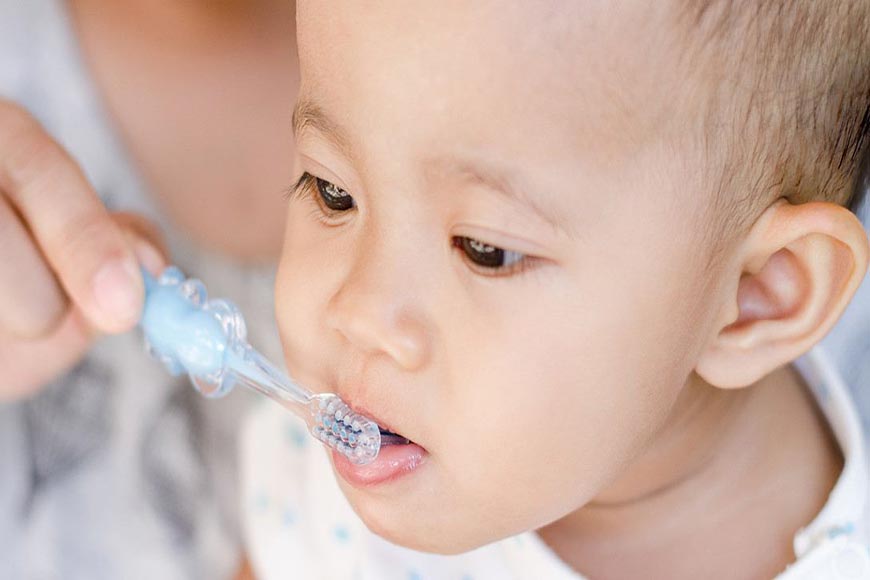Even though your baby doesn’t have to see a dentist until they are one – or their first tooth shows – an oral health care regime starts much sooner. If you aren’t sure how to care for your baby’s teeth properly, or you need a helping hand, then read on.
As soon as your baby is born and starts drinking milk, you should keep in the back of your mind how important those early years are for their oral health. After each feed, wipe the milk residue from their gums with a soft piece of gauze to keep them clean.
Once their teeth start to grow in, a regular brushing regime should begin. Even though your baby’s first set of teeth don’t hang around for very long, they lay the foundation for permanent teeth. Their baby teeth need to be healthy so their gums and adult teeth will be as well.
From age two, you can begin using toothpaste on your tot’s toothbrush. Include brushing into their regime in the morning and at night and encourage them to take control of the process. It also helps to pay attention to how their teeth look. If you notice any discolouration or pitting, then establish why that is. Putting your baby to bed with milk or juice can cause cavities, pitting, and discolouration.
When you take your baby to their first dentist appointment at age one, use it as an opportunity to ask questions and seek advice. Your dentist can educate you on what you should and shouldn’t be doing while advising you on the best products to use as well.
Avoid using adult-marketed products for children and instead, use soft-bristled child toothbrushes and mild toothpaste for kids. You can also choose a toothbrush that features fun colors to make the daily regime more fun for children.
In those early years, it’s also imperative that your baby gets enough fluoride. While they won’t be using a fluoride toothpaste, they should be getting it from your town’s water supply. If they aren’t, ask your dentist about fluoride supplements once they are half a year old.
Fluoride is essential for both adults and children, but it’s crucial for your children while they are growing their adult teeth. When they get it in small doses – such as through drinking tap water or eating supplements, it enters their bloodstream to help with the formation of permanent teeth. As it also strengthens your tooth enamel, it makes it harder for acid to damage teeth.
Not every parent knows straight away how to care for their baby’s teeth. Instead, it can take a trip to the dentist to ask as many questions as possible. Start by wiping their gums followed by brushing their teeth twice per day. You can then establish a long-lasting oral care regime that does your kids well in their older years.

